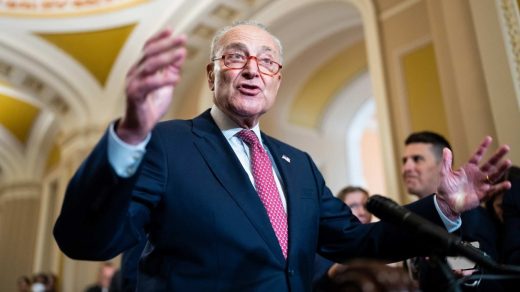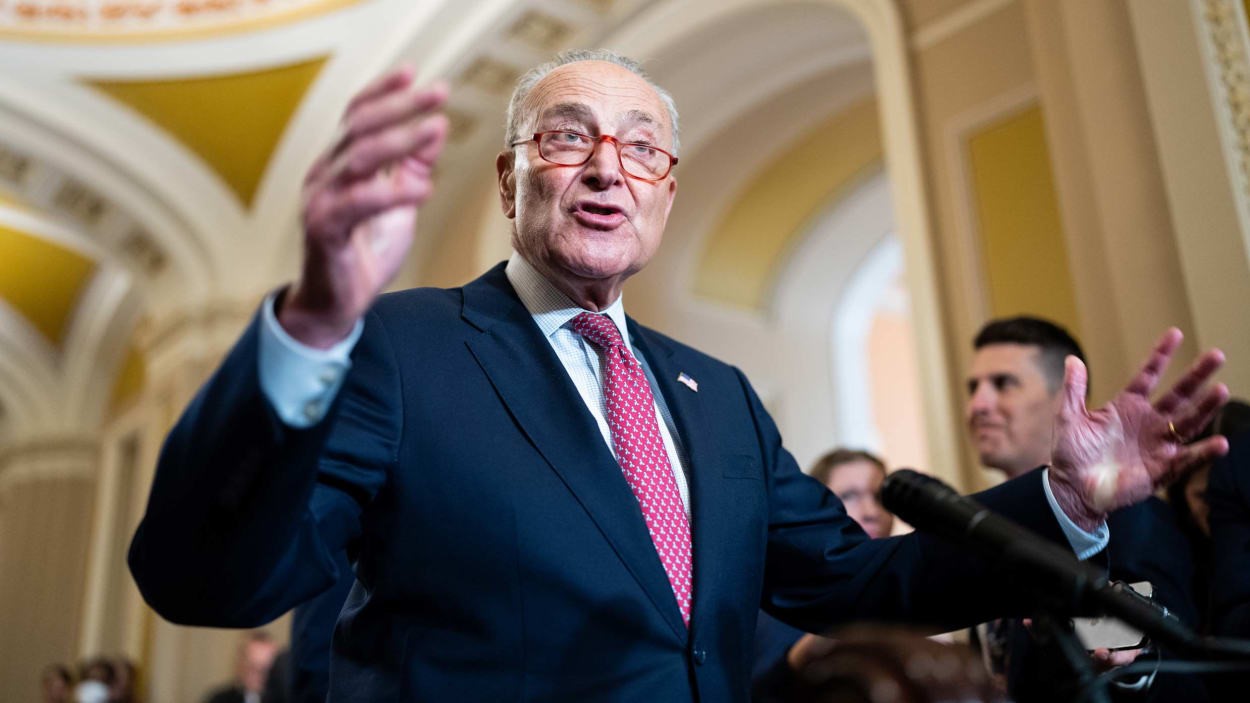Sen. Chuck Schumer’s summit is trying to solve AI’s biggest issues with the wrong guest list
A number of key figures in the AI industry are gathering in Washington today as part of Senator Chuck Schumer’s inaugural AI Insight Forum to hold “a much-needed conversation about how Congress can tackle AI,” as the New York Democrat put it.
But the list of attendees at Schumer’s forum has given some within the AI field pause—both because of the names on the list, and the names missing. Tech companies and their representatives dominate, while civil society representatives are few and far between. “[M]any of the CEOs will act as talking heads for their policy/comms teams,” Deb Raji, a University of California, Berkeley researcher who is attending the summit, tweeted last month. “[A]s usual in the AI space, there’s a severe underrepresentation of civil society, academia and advocacy groups. I suspect it’s because many in govt falsely assume those groups are less familiar with the tech.”
Raji was unable to speak ahead of the forum outside Twitter, but she’s far from the event’s only skeptic.
The gender imbalance was pointed out when the list of attendees was first announced back in August, and some have noted the differing roles men and women are playing in the meeting. “It’s striking to me that tech corporations are represented by men, while people and their rights are represented by people who aren’t men,” says Margaret Mitchell of AI company Hugging Face, and former lead of Google’s AI ethics team. “It’s a case in point of the systemic inequality within tech on the one hand, the pigeonholing of women into non-technical roles on the other hand, and the U.S. government’s contribution in enabling, empowering, and propagating these deeply problematic tech skews.”
That said, Mitchell has worked with a number of those represented at the meeting, and is confident in many of their abilities. “There are multiple people involved who I’ve worked with,” she says. “The majority of them will do a good job representing the interests they are there to represent.”
For Noah Giansiracusa, a professor at Bentley University who was not invited to the event, the list of attendees looks skewed towards the same old voices, reinforcing the same old biases within the tech sector. “This invite list looks a lot like the tech industry’s standard playbook: a few key voices fighting injustice and inequity surrounded by a domineering chorus of tech executives seeking to expand and entrench their enormous wealth and power,” he says.
Giansiracusa hopes that equity-minded voices will be heard among the clamor—but he’s not hopeful. “Good luck to those in the group representing society at large and not just the interests of the tech giants,” he says.
To be sure, Giansiracusa is glad that the summit is happening at all, and praises Schumer for pushing hard on AI regulation and “doing so much legwork before the next wave of bills are drafted”. Still, he worries that set-piece events such as this distract from the deeper conversations that need to be had about the potential and perils of AI.
“I hope this summit and his other efforts—which have involved a lot of schmoozing with, and listening to, tech CEOs—does not overshadow all of the Senate’s other efforts around AI regulation,” he says. “Schumer’s private meetings with big names get the headlines, but the senate committees and staffers are doing a lot of the real work behind the scenes.”
It’s easy to understand skeptics’ fear that special interests could sway Schumer—and by extension, Washington politicos—in their favor when it comes to regulating AI. After all, there’s already a great deal of worry that lobby groups such as the Frontier Model Forum, which represents companies like OpenAI and Google, will effectively entrench the power in the incumbents’ hands, and prevent new, disruptive entrants to the market from gaining a foothold.“If Schumer is influenced by the majority of people in the room,” cautions Mitchell, “then he will align with tech CEOs, which is disappointing from someone tasked with representing the people.”
(21)



